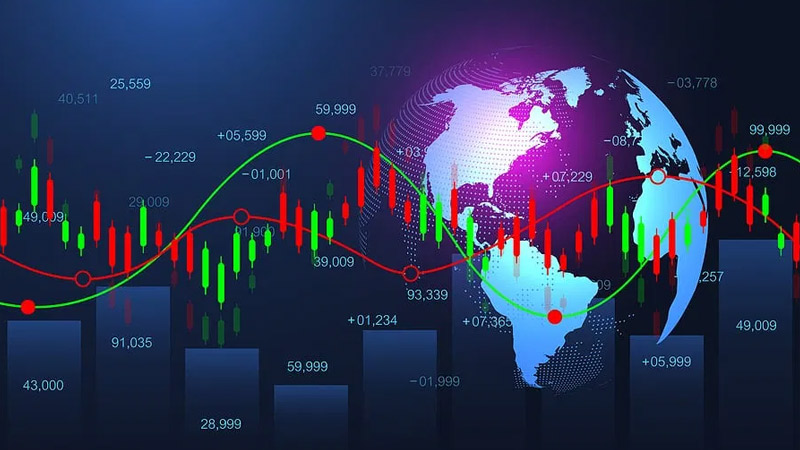
Risks in forex trading
Trading foreign currencies can be lucrative, but it is also fraught with risk. Currency prices can move suddenly and unexpectedly, so it is essential to know the risks involved in trading forex. We will discuss some of the critical risks associated with forex trading and offer tips for mitigating those risks. We hope this information will help you make informed decisions about your trading strategy and boost your chances of success in the Forex market.
What is forex trading, and how does it work?
Forex trading is the simultaneous purchase and selling of different currencies to make a profit. Currencies are traded in pairs, and each currency has its value relative to another. For example, one U.S. dollar may be worth 0.75 euros.
Let’s say a trader buys euros at this price. If the euro’s value rises against the dollar, the trader can sell their euros and buy dollars, making a profit. Likewise, if the dollar’s value rises against the euro, the trader will make a loss when he sells them.
Forex trading is conducted online through specialized brokerages. These brokerages provide access to the interbank market, where banks and other significant institutions trade currencies.
Individual traders can access the interbank market through these brokerages, which typically offer leverage, or borrowing, to allow traders to trade with more money than they have in their account. This leverage can magnify both profits and losses.
The risks associated with forex trading and how to mitigate them
There are several risks associated with forex trading, and it is essential to be aware of them before you begin trading.
The first and perhaps most apparent risk is that of exchange rate fluctuations. Currencies constantly fluctuate in value relative to one another, which can be sudden and unpredictable.
When you buy or sell a currency, the price may have changed by the time your trade is executed. Exchange rate risk can be mitigated by using stop loss orders, which automatically close your position at a predetermined price.
The benefits of forex trading and why it’s a viable investment option
In addition to the risks discussed above, forex trading has several benefits. First, the foreign exchange market is the largest and most liquid market globally, so there is always a large amount of currency available for trading.
It means that you can easily buy or sell currency without worrying about finding a buyer or seller. Second, because the foreign exchange market is open 24 hours a day, you can trade whenever you want. This flexibility can be beneficial if you have a full-time job or other commitments that make it difficult to trade during traditional market hours.
Lastly, forex trading can be an excellent way to diversify your investment portfolio. Investing in a foreign currency can reduce your overall risk by spreading your investments over different asset classes.
Tips for starters who are looking to start trading in the forex market
If you are new to forex trading, you should keep a few things in mind. First, learning about the different currencies and how they are traded is essential. You can do this by reading books or articles about forex trading or taking an online course. Second, choosing a broker regulated by a reputable organization such as the National Futures Association is also essential.
It will help to ensure that your broker is honest and that your trades are executed fairly.
Finally, starting trading with a demo account is also good before you risk any real money. It will allow you to get a feel for forex trading without worrying about losing money.
Conclusion
Forex trading can be risky, but it can also be a lucrative way to make money. By understanding the risks and benefits of forex trading, you can decide whether or not it is right for you. With a little bit of exercise and patience, you can learn how to trade currencies successfully and possibly earn a good return on your investment.


